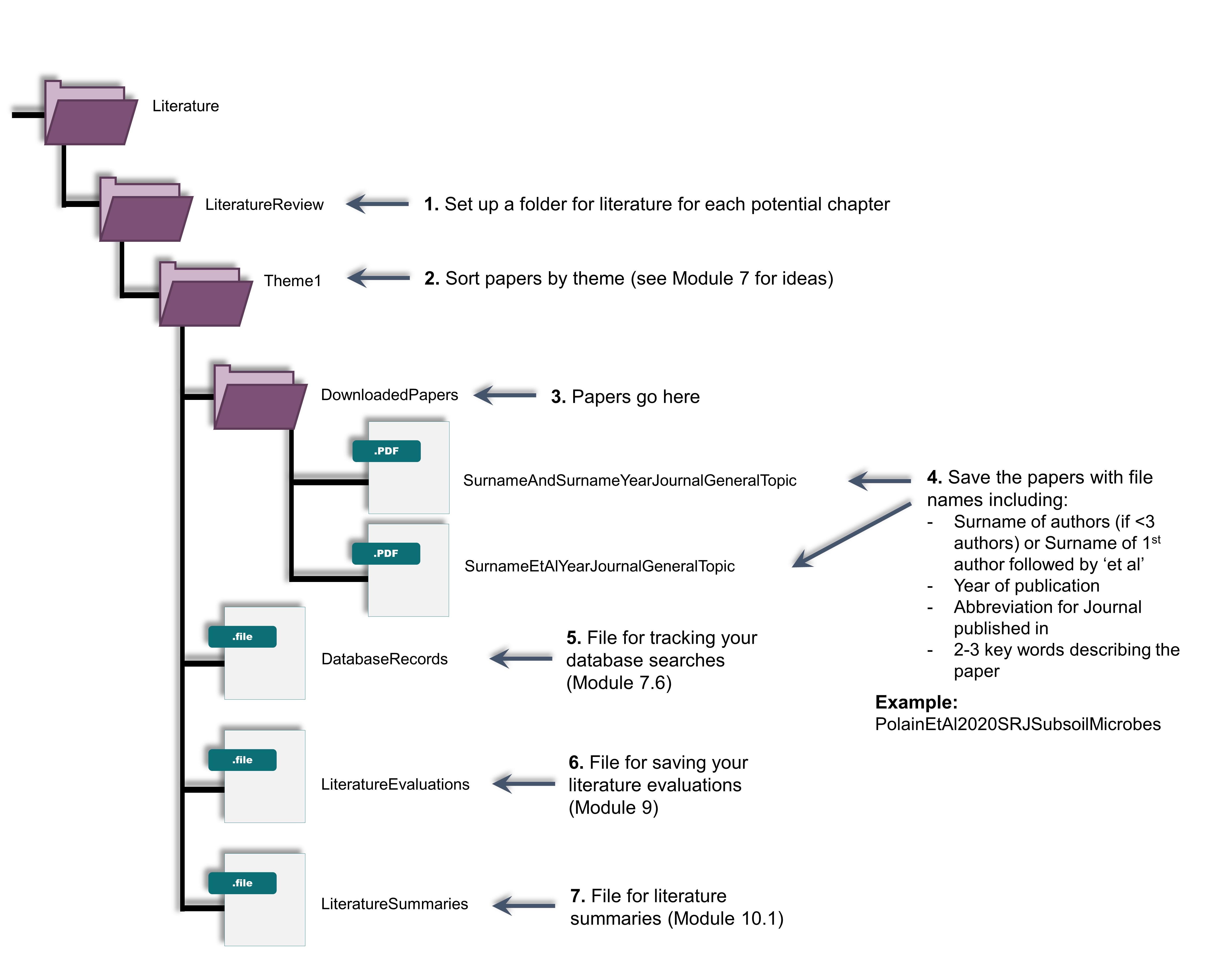Module 8 - Deciding Where To Search
Deciding Where to Search
Now that you have a research question and accompanying search query, you can begin thinking about where to search for information. There are multiple resources that can be used to find information that will support your literature review.
Learning outcomes
Upon completion of this module, you will be able to:
- Locate and identify subject specific databases related to your research topic
- Execute and collate detailed search queries relating to your research topic
- Identify grey literature relating to your research topic
- Retrieve theses relating to your research topic

Download Workbook and Additional Resources
8.1 Getting Ready
Remember the file tree architecture you developed in Module 5 Data Management? If you have not done so already, now is a good time to set up some folders, ready to store any literature you find. How you do this is up to you, but some good guiding principles include:

Figure 8.1 Image of a File Structure
8.2 Using the UNE Library catalogue
During your undergraduate study you would have become used to using a library catalogue and probably Google Scholar. As a postgraduate student you are expected to search the literature more deeply and use subject specific databases. For a quick overview of UNE's Library Search watch this video (Library Search).
8.3 Using databases
Subject specific databases allow you to run detailed search queries (such as the one we created in Module 7) and use a number of filters to achieve specific results. You can also save searches and export results. More information on how to keep track of your database searches was also covered in Module 7 The Research Question.
The Library's A-Z List of databases includes all databases UNE subscribes to. You can filter by subject type as well.
Sign up to the next advanced searching session run by the Library or watch an online video today:
Watch this video on a short overview of databases (UNE log-in required)

8.4 Finding grey literature
The term grey literature refers to research that is either unpublished or has been published in non-commercial form. Much grey literature is of high quality and is often the best source of up-to-date research on certain topics, such as COVID-19.
Examples of grey literature include:
- government reports
- policy statements and issues papers
- conference proceedings
- pre-prints and post-prints of articles
- theses and dissertations
- research reports
- geological and geophysical surveys
- maps
- newsletters and bulletins
- fact sheets
Learn more about finding grey literature.
8.5 Finding theses
Many of you will be writing a thesis as part of your postgraduate research.
As such, you may be interested in finding theses written on similar topics to yours or even looking at how others have presented their research.
Many of the larger databases such as ProQuest and Ebsco index theses and they may come up when you are conducting your literature review. Here is a list of databases that hold theses from a variety of sources.

Progress to Module 9 - Evaluating Sources
Feedback
In order to improve this resource, please email us if you have any questions, comments, or feedback to SOL:AR



